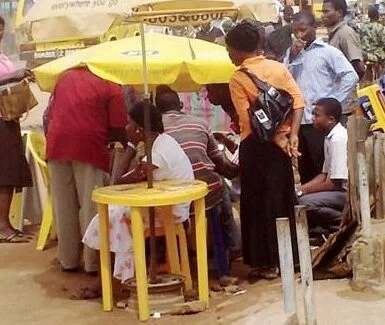Recharge Card Sellers Struggle As Banks Take Over Airtime Market

The once-thriving business of recharge card vending across Nigeria is fast disappearing as more consumers switch to digital channels for airtime purchases.
From busy bus parks to street corners, small-scale vendors who once made steady income from selling physical recharge cards say the business is no longer sustainable.
The rise of mobile banking, USSD transactions, and fintech apps has drastically reduced demand for printed cards.
“I used to sell up to ₦50,000 worth of recharge cards in a day some years ago, but now I can barely sell ₦5,000,” lamented Amina Yusuf, a vendor in Abuja. “People now just buy airtime directly from their bank accounts. The business is dying.”
The shift began gradually as Nigerian banks introduced seamless airtime top-up services through mobile apps and USSD codes, allowing customers to recharge instantly without physical cards. The COVID-19 pandemic further accelerated the move toward cashless and contactless transactions.
Financial experts say the trend reflects a broader digital transformation in Nigeria’s economy.
According to data from the Nigeria Inter-Bank Settlement System (NIBSS), electronic payment adoption has surged by over 200% in the last five years, with airtime top-up among the most frequent transactions.
While convenient for users, the digital shift has pushed thousands of small traders out of business. Many former vendors have been forced to switch to other forms of petty trading or join mobile money agent networks to stay afloat.
Telecommunication companies have also scaled down production of physical recharge cards, focusing instead on electronic PINs and digital distribution channels.
Experts warn that without digital inclusion initiatives, many unbanked Nigerians especially in rural areas—could be left out of the convenience the new system offers.
“The cashless drive is good, but government and telecom operators must ensure that small traders are not completely displaced,” said Dr. Ifeanyi Okeke, an economist based in Lagos.
As Nigeria’s digital economy continues to expand, the humble recharge card a once-ubiquitous feature of daily life is fast fading into history.









